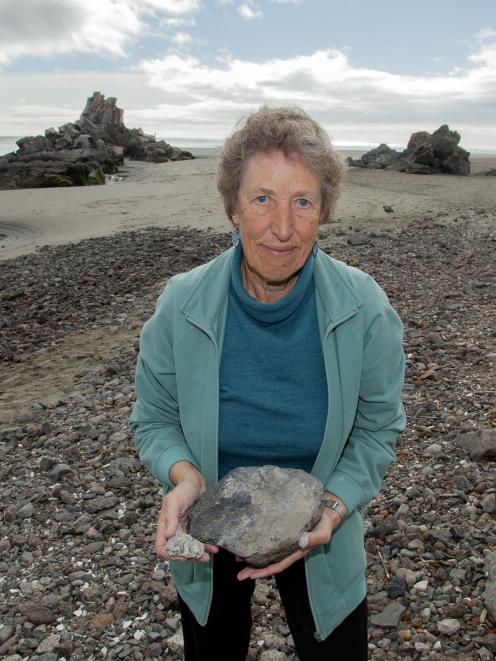
Metservice pollen forecaster Dr David Fountain said the city is now at the peak of the grass pollen season following a slow start due to the cold spring.
“The grasses didn’t grow and develop their flowering structures very quickly because of the cold temperatures following winter and suddenly you get a big high coming over and you get weeks of warm weather and away it goes," he said.
“It’s like spring being uncompressed, the cells in the flowering stalks expand, the grass heads rise up and the pollen starts being produced and right now like I said it is just in full force."
Mr Fountain said hayfever sufferers should be particularly wary of nor’westerlies.
“For Christchurch, the nor’wester brings air from the West Coast and over the ranges and then from the farmlands and the foothills so I think that is a danger.
“However, the city is also well known for its cool sea breezes from the sea and they come from the east and they won’t bring any pollen, so in a way, the sea breeze is an advantage for hayfever sufferers.”

“It seems to be a particularly bad season," she said.
“Another thing that we have noticed is that the nor’wester seems to enhance allergy problems and we have had a lot of those recently."
Unichem Bishopdale pharmacist and co-owner Maria McIntyre said they are also seeing an increased number of people with itchy eyes.
She said when it comes to hayfever, there is not one simple solution.
“Dependent on what your symptoms are and what is most pronounced will influence what is the best medication to try.
“So for some people that suffer really severely, they may find their symptoms are best controlled with eye drops and a nasal spray and antihistamine tablets,” she said.
Ms McIntyre said when it came to choosing particular brands there is not a particular stand out.
“As far as picking the best one, it is more down to individual variation than one being particularly better than the other, but the tablets you can take once a day like a Telfast or a Levrix, they do tend to have really good, long-sustained action.”
Ms McIntyre recommended keeping bedroom windows closed during the morning and driving to work with the car windows closed to avoid pollen.
“Another thing that I tell people for hayfever is that when we are out and about we often collect pollen in our hair.
"As we lie in bed, we rub it all across pillowcases and then breathe it all in throughout the night.
“So rinse your hair at night-time or brush your hair for people that struggle a lot, then you can change your pilowcases. Effectively removing the pollen the best you can at night time can sometimes make that little bit of difference.”
Malaghan institute professor Franca Ronchese said hayfever sufferers react to pollen as if it were a stinging insect.
“Hayfever is a type of allergic disease where our immune system reacts to pollens instead of ignoring them," she said.
"Immune cells produce allergic antibodies called IgE, which react with the pollen, and cause the symptoms of hayfever.
“The consequence is that we start sneezing, our eyes get itchy and watery, and we get a runny nose, which are all different ways for our body to try and push out or wash away the offending pollens.
“Our body reacts as if the pollen was a stinging insect, or a tick or similar, which has to be removed.”
'LIKE MY EYES WERE ON FIRE'

The Fulton Hogan labourer thought he was just tired so he rubbed his eyes.
“I started to sneeze and my workmates started giving me a bit of grief because I was slowing the team down,” he said.
In his first year living in Christchurch, he had only ever experienced very mild symptoms of hayfever before.
“I’ve had the infrequent sneezing before, I wouldn’t even need any medication for that, but never anything to this level. It felt like my eyes were on fire.”
Mr Laing said he came home from playing touch in Hagley Park last week with welts on his skin after diving for the try line and coming into contact with the grass.
“I was also noticing my symptoms would get a lot worse when an old nor’westerly would come around.”
However, he said his symptoms had significantly improved since taking a Flixonase nasal spray once a day.
“It has been unbelievable, I was told by a friend that it would not make much of a difference in the first two days but boy oh boy did it make a difference in the long run.”













